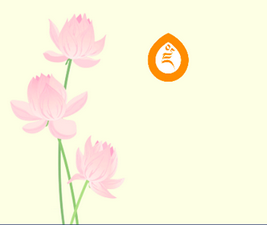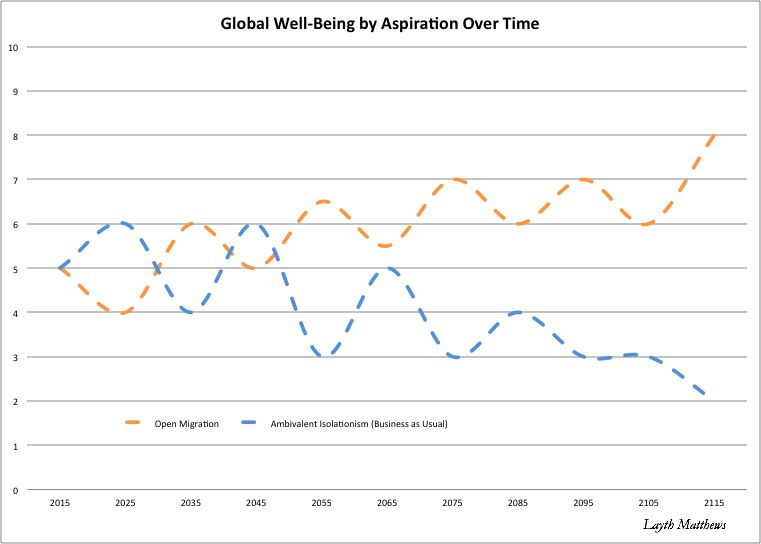Monday
Community ArticlesThe Economics of a Global Self-Interest
Welcome to Shambhala Economics, a column in the Shambhala Times where we publish articles on uplifted ways to view and engage in the economic side of life. Layth Matthews who is a long time student of Shambhala Buddhism and author of, “The Four Noble Truths of Wealth: a Buddhist View of Economic Life” will act as host, editor, and contributor for the column.
by Layth Matthews
It is increasingly clear that our world is in need of some bold new aspirations. Although capitalism and democracy have extended economic development and freedom to more people than ever before, climate change and financial imbalances are threatening to erase these gains at an alarming rate, and there is still so much socio-economic suffering all over the world.
Advancements in technology are creating distractions as well as opportunities to remove dual standards of justice on a global scale, or watch our world descend into the hunger games that follow from ethnocentricity, nationalism, and “single family dwelling” mindsets. The world is getting smaller, so we must think larger.
The only lasting way to “think bigger” is to start smaller. It is not possible to make meaningful and sustainable global change without first examining our own individualistic, competitive, habitual materialism. By making the initial investment to understand ourselves better, we can discover solutions that transcend the endless cycle of aggression.
Why is the examination and elevation of individual perspective so important? Sakyong Mipham has said by ignoring the role of mind in our experience we tend toward defensive interpretations of everything. Egocentricity is a form of near-sightedness that keeps us focused on immature definitions of “self-interest”, ignorant of the wider consequences and possibilities of our choices. Before we start looking for a whole new economic model, we could look to a deeper understanding of what Adam Smith called “self-interest”.
Adam Smith was a Scottish moral philosopher who established a manifesto for free market capitalism with his book, “The Wealth of Nations” in 1776. In Adam Smith’s world each of us is guided to meet the needs of others by the “invisible hand” of our own self-interest. Buddhism has no problem with this logic, the only question being “what is a self?”
From the Buddhist perspective the ultimate self-interest is awakening from the illusion of a static continuous ego. Being fully awake and free from the fetters of ego is the ultimate wealth and compassion is economically efficient as both means and ultimate expression of such wealth. Livelihood and commerce are vehicles of compassion.
Applying Adam Smith’s logic we can assume that the invisible hand of bigger minded choices in the grocery store, at work, in the traffic circle, and in the stock market will simply meet the higher needs of others and transform the economy, all by themselves. The speed with which the economy transforms is a function of how much individuals have internalized a holistic interpretation of self-interest.
Meeting the higher needs of oneself and others i.e. the radiation of well-being through the economy, is possible by setting our aspirations higher, which leads to more outrageous decision-making, no matter what economic model you use. Outrageous, meaning with a definition of success that is practical but not egocentric and extends beyond one lifetime.
The practical and wonderful beginning of that is to develop a more unconditional appreciation of one’s experience as a human being, and that begins with a more subtle understanding of mind. Learning to appreciate the full range of our experience through contemplative practice, we discover the self-existing richness of the world as it is and the inseparable connection between perception and richness.
Appreciation is not the denial of problems to be solved, but rather the source of capacity with which to address them. Buddhism would have us rely more on expanding perception and appreciation vs. heavy logic and competitive cynicism. The spacious clarity of mindfulness and awareness brings farsighted wisdom to personal decisions and organizational policies like the reunification of old friends.
With right understanding we can use technology to help us see the larger implications of our actions instead of just for convenience and entertainment. Good citizenship is a product of feedback and understanding not control (e.g. Interactive speed limit signs vs. traffic cameras). By shortening the feedback loop of farsighted choices we can help others fulfill their higher aspirations instead of just their most impulsive ones.
Global Well-Being by Aspiration Over Time
The global Well-Being chart below is a graphic representation of the next 100 years of human experience differentiated by commitment to a high mutual aspiration or the lack thereof. The orange line represents the aspiration toward “open migration” meaning a world where anyone in any country would be free to relocate anywhere else to seek work or just generally better living conditions. The blue line represents what I call “Ambivalent Isolationism”, which is the situation we have now also known as “business as usual”.
Ambivalent isolationism is where people have altruistic tendencies overall, but lack the confidence in the inherent worthiness (basic goodness) of every human being to remain focused on a long-term plan in the face of shocks, logics, and distractions that inevitably confront us. Hence we make some progress, extending some “charity” altruistically during good times, but quickly withdraw from such conditional generosity when it is not confirmed by the right amount of gratitude, conversions, or is challenged by political tides. Hence we cyclically retreat behind increasingly fortified borders to feed our desperation for control.
“Open Migration” here represents an aspiration based on an unshakable faith in the primordially pure nature and worthiness of every human being, essentially regarding every human being as family. Such unshakable faith can only be established experientially.
Through the practice of sitting meditation we gain an unconditional confidence in our own basic goodness and it is an easy step from there to recognize the same in others. Setting an aspiration toward open migration removes the tendency to retreat to fixations on our own comfort and keeps the priority firmly on stabilizing and uplifting the well-being of others wherever they may be. In this way, ethnocentric, nationalistic, and egocentric borders can become increasingly porous rather than increasingly fortified.
The Way of The Economic Warrior
On the Shambhala path the idea of warriorship is the entry point to a sacred path through life. The idea of sacred path is that every situation we are in has its own integrity and is worthy of our full attention and appreciation. Indeed there are advanced teachings that suggest every situation of our lives, including our dead end jobs, is the perfect learning situation for each of us.
Warriorship is basically an orientation toward problem solving by means of clearer perception vs. manipulation. We call it warriorship because it is very brave to appreciate things as they are rather than comment on how they should be. The path of warriorship begins on the meditation cushion where we practice abandoning the content of our preoccupations in favor of a larger perspective on the comings and goings of mental activity overall. This kind of warriorship is characterized by gentleness because open perception requires vulnerability and patience.
The application of warriorship in everyday economic life is the same as on the meditation cushion. It is the practice of withholding judgment and learning to appreciate the subtle qualities of every situation as much as we can and resisting defensive attitudes. Life becomes a rich experience of subtle perception. Decisions are informed with more information.
What would happen if you showed up for work wide awake but completely unguarded? People would wonder what you’re really up to! Taking your egocentric goggles off, you might see right into the beating hearts of your customers and co-workers. This would remove the myopia from your choices and organically transform your organization and the economy.
From the Shambhala point of view an enlightened society is one characterized by a universal confidence in basic goodness. We can infer that an enlightened economy is one based on wealthy outlook. How can we create enlightened economy? By exploring the reliability of this view of unconditional wealthiness through the practice of sitting meditation.
~~
 Layth Matthews, is Senior Mortgage Advisor and CEO of RateMiser Mortgage Advisors and the Author of “The Four Noble Truths of Wealth: a Buddhist view of economic life”. He is a Shambhala Training Director and a Former Director of the Victoria Shambhala Center. He lives in Victoria, British Columbia, Canada with his wife and three children.
Layth Matthews, is Senior Mortgage Advisor and CEO of RateMiser Mortgage Advisors and the Author of “The Four Noble Truths of Wealth: a Buddhist view of economic life”. He is a Shambhala Training Director and a Former Director of the Victoria Shambhala Center. He lives in Victoria, British Columbia, Canada with his wife and three children.



















Jun 24, 2015
Reply
Thanks for the extensive response Layth. Vast view is essential for good decision making. That’s absolutely true in both economics and politics.
But the distinction between the two is important to keep in mind. Economic decision making about consumer purchases is of necessity an act that exists within, implicitly accepts, and in fact lends energy to the overall framework of the current economic system and paradigm. Political decision making on the other hand shapes the very context in which economic activity takes place.
There is a major difference between being a conscious consumer and taking a stand for political changes to the economic system itself. The former is relatively easy and relatively risk free. I would also argue that it has relatively little transformative impact in our world. The latter is far harder to do and far riskier. The murky waters of political debates are some of the most fertile grounds for neurosis that I know of. On the other hand, refusing to enter those waters is supporting the status quo, which is also a political stance, so there we are in those waters anyway.
We can’t escape from it, and if meditation allows us to feel the texture of the situations we are in at a deeper level, then it is indeed a powerful tool for transformation.
Jun 23, 2015
Reply
Hi Ryan and Susan,
Thank you both for your wonderful comments!
Ryan, I basically agree with both your points above. However, I would like to clarify that the power of economic values is not expressed through consumer choices alone. One’s economic outlook is expressed personally, organizationally, and politically. Economic warriorship is the intelligent expression of awareness beyond one’s immediate personal entertainment and comfort. Which I argue is simply a more mature grasp of “self-interest”. National and international policy is an outcome of the collective values of the electorate, theoretically at least.
For example, it has become apparent that developed countries share an interest in the environmental choices the rest of the world makes on its path to “development”, so we have two choices, become more empathetic to their predicaments and help them develop their sustainable strengths, or wall ourselves in to ever smaller units of control. This is a metaphor that can be applied to economic, environmental, and security decisions that communities make too. The only question in both cases being “How far sighted is your frame of reference?” “We want the sewage plant located here, as a matter of pride!” “We can handle it!”
My point is that a vast view is essential to genuinely progressive decision making. The seemingly outrageous (materialistically irrational) aspirations of such a view are both compassionate and rational using the yardstick of global well-being vs. GDP. Too often we take the view for granted and grasp on to small minded tactics, e.g. ethanol, drone warfare, missing the larger opportunity costs and consequences in the process.
As for open migration, I thought short and hard about choosing that banner here :), but I think it tempers remarkably well the nationalistic and global class politics that rule today. Are we making some progress toward more global thinking? maybe, hopefully, on a good day, in a good year… but not near enough. Why? Because the elephant in the room is we are increasingly needing international and global solutions. The only way to discover global solutions is to set global aspirations. The way to discover worthy global aspirations is with a global heart.
I think open migration is an excellent guiding star because it incentivizes local and distant well-being. “If you don’t want them to move here, then you better help make it better over there” (which isn’t exactly selfless, but it’s a start.)
However, I think a Buddhist approach would not be stuck on any particular policy or time table, but rather it would optimize for the path of least aggression. We have to be realistic about what our current societies can handle, of course. But it’s clear we can “handle” a lot more. Having a globally inclusive guiding star to work toward focuses our creativity and definitions of success in the right direction. Other people’s problems become our problems too, which they are already, we’ve just been pretending otherwise under our ethnocentric, nationalistic, single family blankets.
Now that I have laid out all that logic, I really want to bring it back to the meditation cushion. The practice of sitting meditation really is the ultimate form of social activism. Why? because it is where we discover the inherently wealthy outlook, which frees us from small minded defensiveness, and allows the space to experience the value of a vast view. To learn how to relax and be kind to oneself is the best way to learn how to be kind to others too.
Jun 22, 2015
Reply
Thank you, Layth, for opening my mind to the view of Open Migration, along with your other reminders about how to re-envision beyond fear-based economic structures. Also grateful for your wonderful book.
Jun 22, 2015
Reply
Hi Layth,
I feel like you are expressing a couple of contradictory ideas here. On the one hand it seems like you are taking the position that all we need is bigger minded consumer choices to positively transform the economy. On the other, you are putting forward the idea that “open migration” policies are important for increased wellbeing. The latter is quite a radical political idea in today’s context, and whatever its merits, it certainly isn’t something that is going to come about only through better shopping habits.
Regards,
Ryan